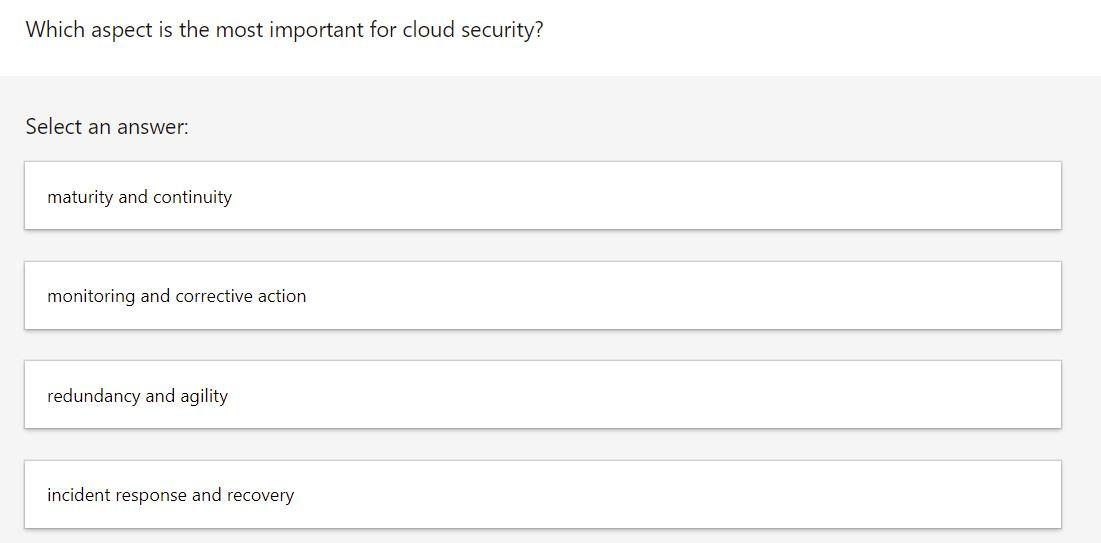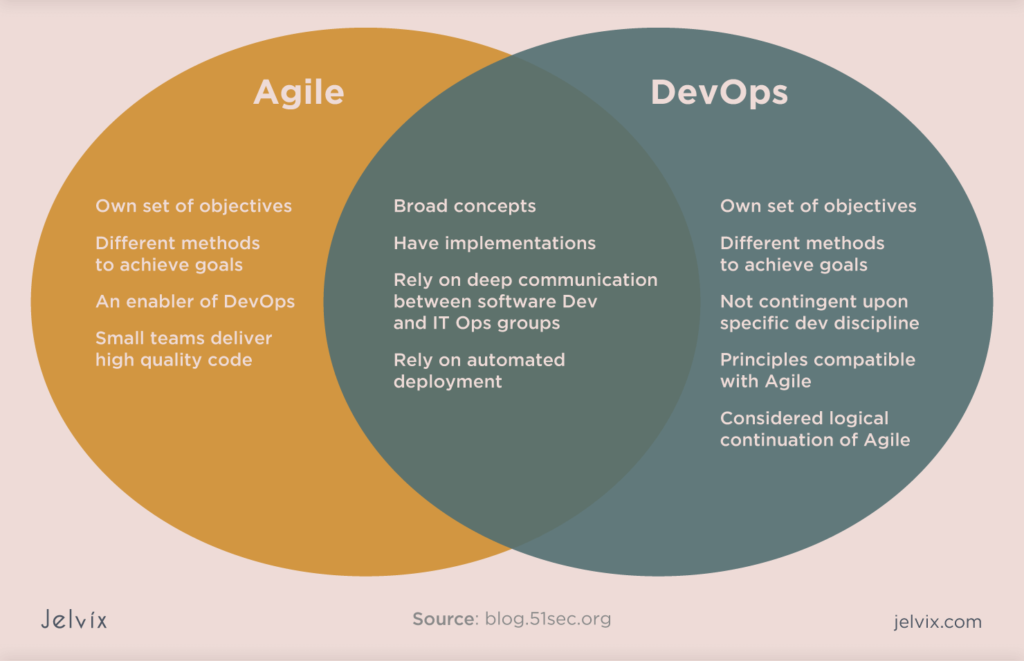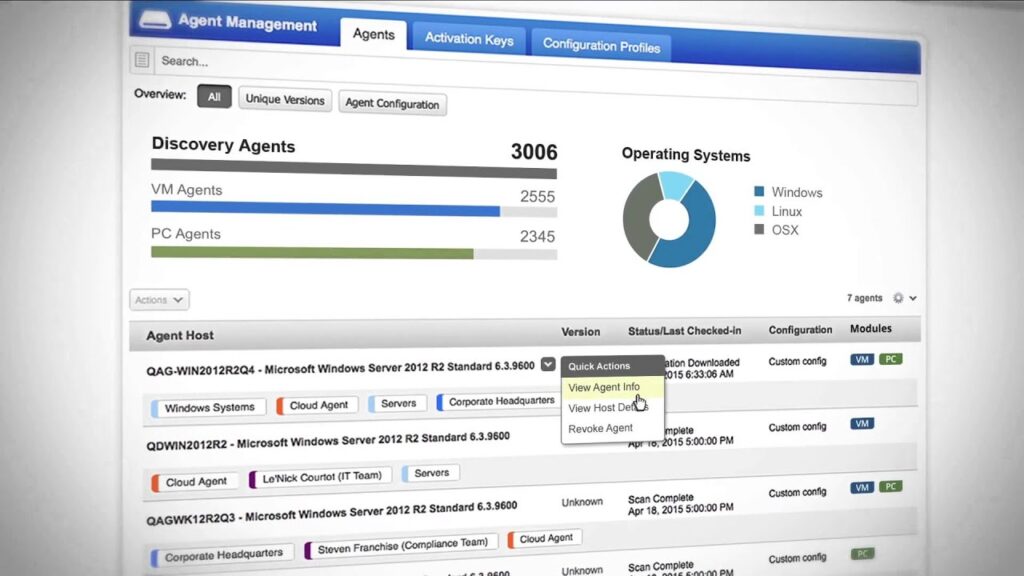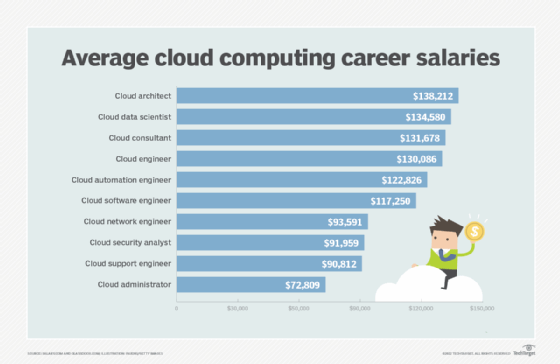With the increasing use of cloud computing, the need for robust security measures has become more pressing. Cloud security is a complex and multifaceted issue, with a wide range of threats and vulnerabilities to consider. As such, it’s important to identify which aspects of cloud security are most crucial to ensure that your organization is fully protected.
One of the biggest challenges with cloud security is that it’s often difficult to determine what the most important aspect is. Some may argue that encryption is the key, while others may focus on access control or data backup. Ultimately, the answer may vary depending on the specific needs and requirements of your organization. In this article, we’ll explore some of the key aspects of cloud security and examine which ones are most critical to ensure that your data and systems are fully protected.
The most important aspect of cloud security is data security. This involves protecting data from unauthorized access, use, disclosure, disruption, modification, or destruction. It also involves ensuring that the data is secure against theft, loss, or damage. Data security is essential to ensuring the confidentiality, integrity, and availability of the data stored in the cloud.
Cloud Security: What is Most Important?
Cloud computing is quickly becoming one of the most popular ways to store and access data. As such, cloud security has become an increasingly important factor in data storage and accessibility. In this article, we will explore the various aspects of cloud security and which one is the most important.
Data Security
Data security is the most important element of cloud security. Data stored in the cloud must be protected from unauthorized access, alteration, and deletion. This means that cloud providers must use advanced encryption techniques to ensure that data is kept secure. Additionally, cloud providers must also have measures in place to prevent malicious actors from accessing data. This includes the use of firewalls, authentication protocols, and other security measures.
The other aspect of data security is data backup. Cloud providers must have a robust backup system in place to ensure that data is not lost or corrupted. This includes a regular backup schedule and the ability to restore data in the event of a disaster. Cloud providers must also provide an audit trail to ensure that all changes to data are tracked and can be traced.
Network Security
Another important aspect of cloud security is network security. Cloud providers must ensure that their networks are secure from external threats and malware. This includes the use of firewalls, intrusion detection systems, and other measures to protect networks from malicious actors. Additionally, cloud providers must also ensure that their networks are resilient and can withstand distributed denial of service attacks.
The other aspect of network security is data integrity. This means that data must be protected from being modified or corrupted. Cloud providers must use data integrity checking mechanisms to ensure that data is not altered or corrupted. This includes checksums, digital signatures, and other security measures.
Data Accessibility
Data accessibility is also an important aspect of cloud security. Cloud providers must ensure that data is accessible to authorized users and that access is controlled by authentication protocols. This includes the use of passwords, encryption protocols, and other measures to ensure that only authorized users can access data. Additionally, cloud providers must also ensure that data is available in a timely manner and that data is not lost due to technical issues.
Compliance
Compliance is also an important aspect of cloud security. Cloud providers must ensure that their services are compliant with industry standards and regulations. This includes ensuring that data is protected from unauthorized access and that data is not shared with third parties without the customer’s consent. Additionally, cloud providers must also ensure that their services are compliant with privacy regulations and data protection laws.
Monitoring and Reporting
Monitoring and reporting are also key elements of cloud security. Cloud providers must have monitoring and reporting systems in place to ensure that security breaches are identified and addressed quickly. This includes the use of log files, event logs, and other monitoring systems to detect and investigate security incidents. Additionally, cloud providers must also have a reporting system in place to ensure that customers are informed of any security incidents or breaches.
Conclusion
Cloud security is a complex issue and there are many aspects that must be taken into consideration. Data security is the most important element of cloud security as it ensures that data is protected from unauthorized access, alteration, and deletion. Network security is also important to ensure that networks are secure from external threats and malware. Additionally, data accessibility, compliance, and monitoring and reporting are also key elements of cloud security.
Frequently Asked Questions
Cloud security is an essential factor in protecting the data you store, process and access in the cloud. To ensure the security of your cloud environment, it is important to understand the various aspects of cloud security, from authentication and authorization to data encryption.
What is the most important aspect of cloud security?
The most important aspect of cloud security is authentication and authorization. Authentication is the process of ensuring that a user is who they claim to be, while authorization is the process of granting access to a specific user. Authentication and authorization are essential for secure access to the cloud, as they ensure that only authorized users can access the data and resources stored in the cloud.
Another important aspect of cloud security is data encryption. Data encryption ensures that data is protected from unauthorized access. By encrypting the data stored in the cloud, the risk of unauthorized access is greatly reduced. Additionally, data encryption can help maintain the privacy and integrity of your data, as it ensures that only authorized users can access the data.
What other aspects of cloud security should be considered?
In addition to authentication and authorization and data encryption, there are many other aspects of cloud security that should be considered. These include identity and access management, vulnerability management, incident response, and compliance. Identity and access management is the process of controlling user access to data and resources. Vulnerability management is the process of identifying and mitigating potential threats to the cloud environment. Incident response is the process of responding to security incidents quickly and effectively. Lastly, compliance with regulations is also important for cloud security, as it helps ensure that your cloud environment meets the necessary security standards.
Furthermore, it is important to keep in mind that cloud security is a continuous process. As new threats emerge, cloud security must be constantly monitored and updated in order to ensure the security of your data and resources. Additionally, it is important to have secure processes and policies in place to help ensure the security of your cloud environment.
What are the benefits of cloud security?
The primary benefit of cloud security is the protection of data and resources stored in the cloud. By implementing secure authentication and authorization protocols and data encryption, the risk of unauthorized access is greatly reduced. Additionally, cloud security can help maintain the privacy and integrity of data, as it ensures that only authorized users can access the data.
Another benefit of cloud security is increased efficiency. By implementing secure authentication and authorization protocols and data encryption, organizations can reduce the time and cost associated with manually managing user access to data and resources. Furthermore, cloud security can help improve compliance with regulations, as organizations can ensure that their cloud environment meets the necessary security standards.
What security measures should be taken to protect the cloud environment?
In order to protect the cloud environment, organizations should implement a multi-layered security approach. This approach should include authentication and authorization protocols, data encryption, identity and access management, vulnerability management, incident response, and compliance with regulations.
Authentication and authorization protocols should be implemented to ensure that only authorized users can access the data and resources stored in the cloud. Data encryption should also be used to protect data and resources from unauthorized access. Additionally, identity and access management should be used to control user access to data and resources. Vulnerability management should also be implemented to identify and mitigate potential threats to the cloud environment. Finally, incident response and compliance with regulations should also be considered to ensure the security of the cloud environment.
How can organizations ensure that their cloud environment meets the necessary security standards?
Organizations should ensure that their cloud environment meets the necessary security standards by implementing secure authentication and authorization protocols, data encryption, identity and access management, vulnerability management, incident response, and compliance with regulations. Additionally, organizations should regularly monitor and update their cloud security measures to ensure that they are up-to-date with the latest security threats.
Furthermore, organizations should also perform regular security audits to identify any potential weaknesses in their cloud environment. This will help organizations to identify any areas that need to be improved in order to ensure that their cloud environment meets the necessary security standards. Additionally, organizations should also review their security policies and procedures to ensure that they are up-to-date and effective.
By taking these steps, organizations can ensure that their cloud environment meets the necessary security standards and is secure from potential threats.
In conclusion, the question of which aspect is the most important for cloud security is a complex one that does not have a straightforward answer. However, it is clear that a multi-layered approach to cloud security is necessary to ensure the safety and confidentiality of sensitive information stored in the cloud. This approach requires a combination of technical measures such as encryption and access controls, as well as organizational policies and procedures that promote security awareness and compliance.
Ultimately, the importance of each aspect of cloud security depends on the unique needs and risks of each organization. As such, it is critical for organizations to conduct regular risk assessments and implement tailored security measures that align with their business objectives and regulatory requirements. By taking a holistic approach to cloud security, organizations can mitigate the risks associated with cloud computing and confidently leverage the benefits of this transformative technology.





